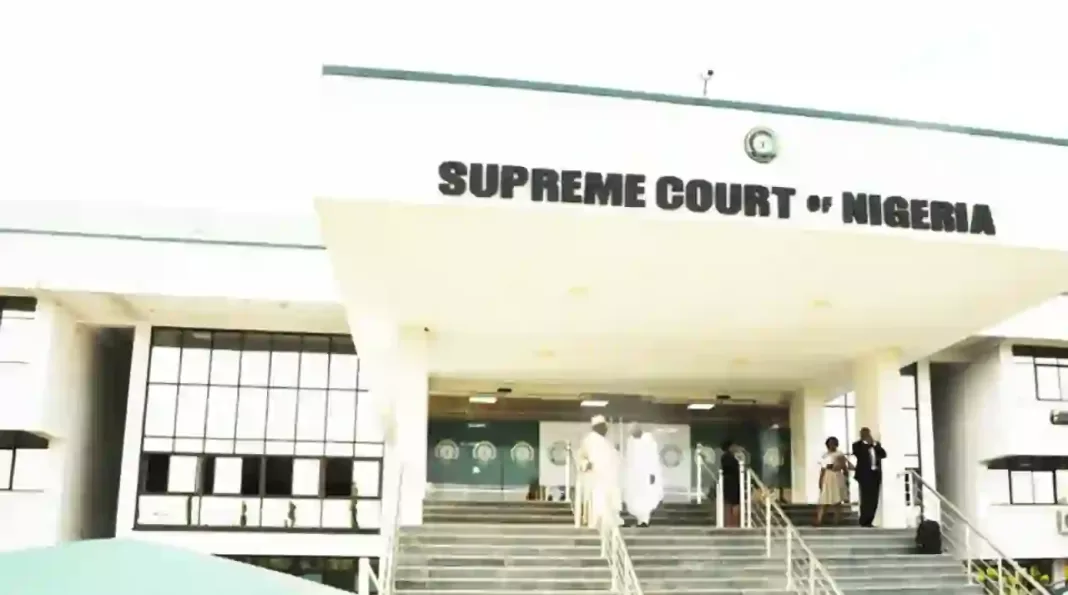The Supreme Court, on Friday, dismissed the suit instituted by 16 states of the federation challenging the constitutionality of the acts establishing the Economic and Financial Crimes, Commission (EFCC) and two others.
The plaintiffs had argued that it was a UN Convention against corruption that was reduced into the EFCC Establishment Act and that in enacting this law in 2004, the provision of Section 12 of the 1999 Constitution, as amended, was not followed.
They posited that, in bringing a convention into the Nigerian law, the provision of Section 12 must be complied with.
While delivering judgement, Justice Uwani Abba-Aji, who led a seven-member panel of justices, held that “the EFCC Act, which is not a treaty, but a convention, does not need the ratification of the houses of assembly.
“Let me first look at the constitutional provision. The plaintiffs rely on Section 12 of the constitution in their argument. Treaty is an agreement reached by two or more countries which has to be ratified.
“Convention: Conventions are agreed by a larger number of nations. Conventions only come into force when a larger number of countries agree.
“Therefore, the EFCC Act, which is not a treaty but a convention, does not need the ratification of the houses of assembly.
“A convention would have been ratified by members state and the NASS can make laws from it, which will be binding on all the states in Nigeria as it is the case of EFCC Establishment Act.
“In a country like Nigeria, the federating units do not have absolute power. The NFIU guideline is to present a benchmark and not to control the funds.
“Where an Act of law is made by NASS like the NFIU and its guideline, it is binding on all. Any act that has been competently enacted by the NASS cannot be said to be inconsistent.
“Where the NASS has enecated several laws on corruption, money laundering, etc, no state has the right to make law to compete with it.
“The investigative power of the EFCC cannot be said to be in conflict with legislative powers of the state assembly.
“I must agree with the AGF that the plaintiffs’ argument, that is, the houses of assembly of the plaintiffs states is not tenable in law.”
The Court ruled that the NFIU guideline had not contravened the provision of the constitution to manage the funds of their states and resolve the issues against the plaintiffs.
All other judges agreed with the lead judgment, saying all the issues raised in the states’ suit had no merit “and are accordingly dismissed.”
The Court had earlier dismissed all objections of the Federal Government to the suit filed by the states.
Justice Abba-Aji said the plaintiffs case was against the Attorney-General of the Federation and not any of the agencies mentioned, hence, the Supreme Court has jurisdiction to determine it.
“Since the AGF is assumed to be the chief law officer of the federation, he is by all means the proper and necessary party.
“The AGF has locus standi to institute action against any one
And the AGF can be sued in any civil matter against the government.
“It is clear that the Federal Government has legal tussle with the states based on the directive of the NFIU, which the states are contending. The preliminary objection is hereby dismissed.”
Discover more from The Source
Subscribe to get the latest posts sent to your email.








